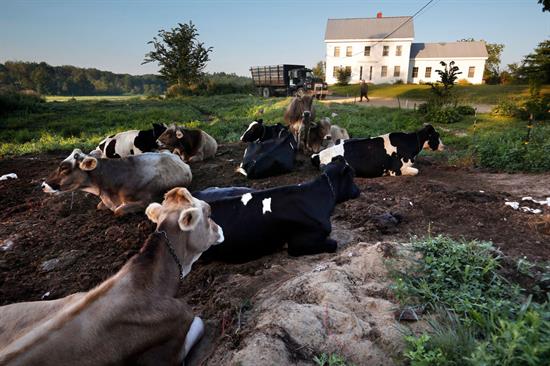Press Releases
Pingree Secures $5 Million to Aid PFAS-Impacted FarmersThe Fiscal Year 2023 funding bill also includes $34.5 million for 15 community projects in Maine’s First District, adds York River to the National Park Service’s ‘Wild and Scenic’ list, and protects the livelihoods of Maine lobstermen
Washington,
December 23, 2022
Congresswoman Chellie Pingree (D-Maine), a senior member of the House Appropriations Committee, today celebrated final passage of the government funding bill for Fiscal Year 2023 which directs the United States Department of Agriculture (USDA) to dedicate $5 million to assist farmers whose land has been contaminated by PFAS or “forever chemicals”. As Chair of the House Appropriations Subcommittee on Interior, Environment, and Related Agencies, Pingree also authored provisions in the spending bill to increase the Environmental Protection Agency’s (EPA) ability to address PFAS mitigation nationwide. “While Maine has led the nation in testing and responding to PFAS contamination on farmland, there is no question that farmers in other states will be affected. However, without any sort of safety net at USDA to support PFAS-impacted farmers, the people who feed us could lose everything. That’s why the $5 million I championed in this spending bill is a critical step to support our farmers through this crisis,” said Pingree. “This is just the start, and I look forward to working with my colleagues on both sides of the aisle to build on this funding as we approach the next Farm Bill.” "Maine is committed to supporting our farmers whose lands have been impacted by PFAS contamination," said Maine Department of Agriculture, Conservation and Forestry Commissioner Amanda Beal. "This funding championed by Congresswoman Pingree will help Maine and other states take even more aggressive action to identify and address PFAS contamination nationwide." “Maine Farmland Trust (MFT) is pleased to see that the year-end federal spending bill retains $5 million dollars of needed support for farmers with known PFAS contamination on their land. MFT has been working for months with a broad range of Maine stakeholders to channel urgent funding and resources to impacted farmers. But more support is needed in Maine and across the country,” Shelley Megquier, Policy & Research Director of Maine Farmland Trust said. “Other states are beginning to recognize the reality that Maine already has - that PFAS contamination endangers farm families, the agricultural sector, and our food system. This funding will enable USDA to provide increased support to impacted farmers in states with established thresholds and to accelerate research efforts on PFAS uptake, mitigation, and remediation methods. Getting this support and evidence to impacted farmers will help to ensure that farmers in Maine and across the country continue to thrive.” Omnibus highlights for Maine: Federal support for farmers affected by PFAS contamination
Addition of York River to the National Park Service’s ‘Wild and Scenic’ List
Support for Maine’s lobster fishery
$34.5 million for 15 community projects
For the first time, the annual spending bill includes $5 billion in mandatory funding for the Cost of War Toxic Exposures Fund established in the Honoring Our PACT Act of 2022. Combined with discretionary funding provided for Veterans Medical Care, these resources will help fulfill House Democrats’ commitment to veterans without endangering other key investments in social services such as child care, medical research, housing, education, and other non-defense programs. The bill also includes $44.9 billion in much-needed emergency security, economic, and humanitarian aid to support the Ukrainian people and $40.6 billion for other purposes including assisting communities across the country recovering from drought, hurricanes, flooding, wildfire, natural disasters, and other emergencies. Notably, the Fiscal Year 2023 Appropriations bill includes the highest level for non-defense funding ever. The package now heads to President Biden’s desk. The text of the Consolidated Appropriations Act, 2023 is available here. A list of bill highlights is here. ###
|

